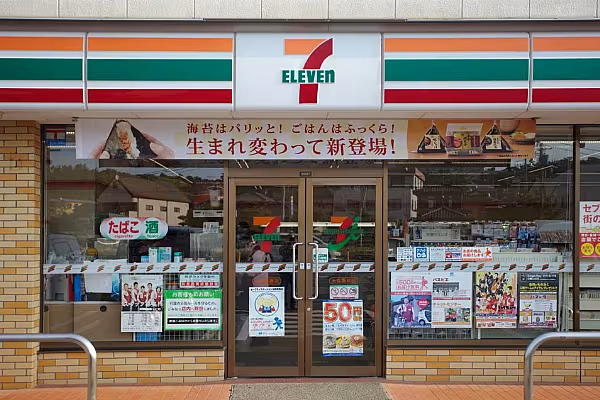Japanese retailer Seven & I Holdings Co has announced plans to revamp its board of directors as it seeks to accelerate overseas growth.
The operator of 7-Eleven convenience stores has been under pressure from activist fund ValueAct Capital to make structural reforms and sell off assets.
The company said in a statement it would name two female and three non-Japanese nominees to the new roles of independent outside directors, making external members the majority in its board composition.
Diversity And New Skills
The revamp is intended to add diversity and bring in new skills as the company pursues growth outside Japan, it said.
Seven & i said it would continue reforms of its business portfolio, and that it had hired a financial adviser to conduct a strategic review of its Sogo & Seibu department store unit.
ValueAct, which holds a 4.4% stake, had urged the company to sell off Sogo & Seibu, saying in February that Seven & i could more than double its share price by focusing on its convenience stores.
Seven & i made the announcement along with full-year financial results. Operating profit rose 5.8% to 388 billion yen (€2.88 billion) in the year through February, it said in a separate statement.
Omnichannel In China
Elsewhere, a report from GlobalData suggests that 7-Eleven should develop an online proposition to halt its market share decline and expand its omnichannel operations in China.
The report report, 7-Eleven, China (Food and Grocery) Shoppers Profile, Market Share and Competitive Positioning, reveals that the retailer has a large young shopper base with 42.3% between the age of 25-34 years. However, it does have an audience amongst the older generations too with 31.5% shoppers in Gen X and 23.8% shoppers in the Boomers generation.
7-Eleven has extensive accessibility and store presence in China with over 2,800 stores, GlobalData said. Its wide assortment of food and grocery products makes it a ‘go-to retailer’ for these purchases.
However, its lack of an online operation in China puts it at a disadvantage, according to Suresh Sunkara, retail analyst at GlobalData.
"Its market share has been on a decline since 2018 and it fell out of the top 10 grocers in terms of sales in 2020," Sunakra said. "Other players like Yonghui Superstores and Walmart have built omnichannel operations for grocery delivery making consumers accustomed to these services.
“Consumers also expect digital elements like QR codes, alternative payment methods in store and 7-Eleven needs to catch up with this to retain the digitally inclined young shopper.”
News by Reuters, additional reporting by ESM – your source for the latest retail news. Click subscribe to sign up to ESM: European Supermarket Magazine.














